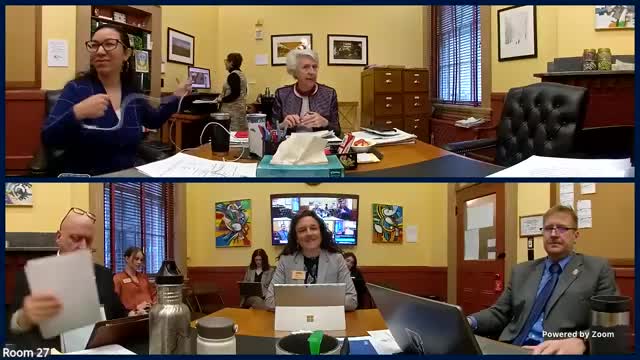VHFA urges funded study of off‑site housing, says off‑site construction alone won’t cut costs
Get AI-powered insights, summaries, and transcripts
Subscribe
Summary
Laura Collins of the Vermont Housing Finance Agency told the Senate committee that the state should fund a study committee and staffing to answer practical questions — about bulk purchase, siting, codes and financing — before launching a program to scale off‑site housing in Vermont.
Laura Collins, executive director of the Vermont Housing Finance Agency, told the Senate Economic Development, Housing & General Affairs committee that the state needs funded time and staff to determine whether an off‑site housing program can actually lower costs before committing public dollars.
"Just because something is built off‑site does not make it cheaper," Collins said, urging the committee to back a staffed study to narrow the policy choices and test whether bulk purchase, standardized codes and site readiness could produce savings.
The committee has identical language in its draft Senate and House bills (section 23 in draft 3.1) to create a study of off‑site housing options. Collins summarized a VHFA‑commissioned report by Jeff Lubell that examined manufactured, panelized and modular housing and concluded that only certain conditions — for example bulk purchasing and site standardization — are likely to yield meaningful cost reductions.
Collins told members the working proposal included a roughly $250,000 appropriation to cover one FTE to project‑manage the work and to hire consultants and do regional outreach. She and other committee members discussed specific questions that must be answered before any program: ownership versus rental, number of bedrooms, who carries carrying costs, whether units must be customized to local codes, and where prepared sites would be located.
Committee members raised immediate concerns about disaster response, citing last session’s difficulty placing FEMA trailers after floods and urging clarity about siting in emergencies. Collins said some work is already proceeding: the town of Fairhaven received funding through a community development block grant to study restarting a plant, and VHFA has fielded interest from manufacturers. But she said VHFA lacks capacity to pursue the full set of questions without additional staff and funding.
Members debated whether to create a study committee or to direct existing agencies to act. Some expressed impatience with additional studies and urged DHCD or the state housing authority to move faster on practical permitting and lot‑size guidance; others said answering the many questions requires coordinated, funded work. Committee members agreed to hold the proposal as a potential amendment to the housing bill and asked for draft language and progress figures to present to the finance/appropriations process.
The committee chair said members could either attach a modest amendment to the housing bill now or carry the conversation forward with the House and other agencies after crossover. No final appropriation was passed at the meeting; members asked VHFA and staff to prepare draft amendment language and program figures for the next consideration cycle.
